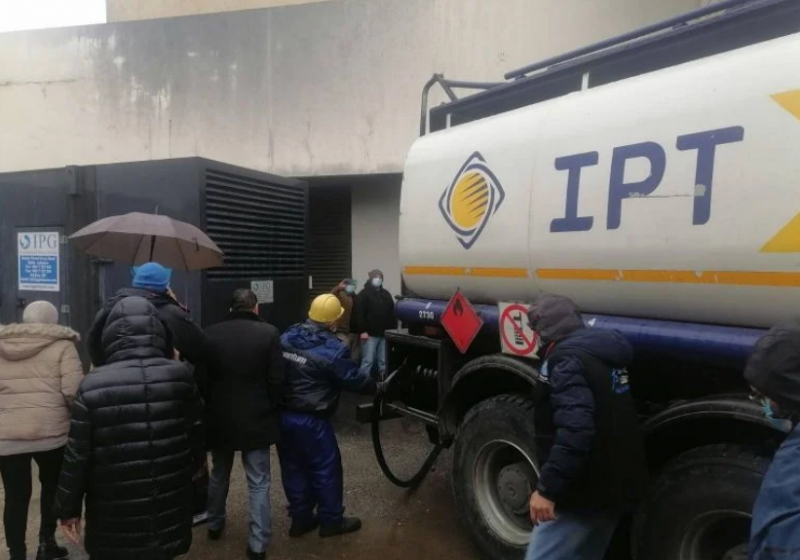
A UN-funded fuel delivery arrives at Sibline Governmental Hospital in January. (Credit: Abby Sewell/L'Orient Today)
BEIRUT — United Nations Resident and Humanitarian Coordinator Najat Rochdi’s office wrote in a statement that the UN will no longer support hospitals and water stations with fuel, saying that the World Food Program, the World Health Organization, UN Children's Fund, sector partners and UN Office for the Coordination of Humanitarian Affairs have now “delivered the last drop of fuel as part of emergency fuel operations under the UN coordinated Emergency Response Plan.”
Here’s what we know:
• The Emergency Response Plan, which was launched in August 2021, has been funded at 25 percent, according to the statement. “Urgent support is needed to sustain operations and scale-up critical humanitarian activities, in line with Lebanon Crisis Response Plan humanitarian interventions and UNRWA programs,” it added.
• Rochdi expressed concerns about the energy crisis’ effects on essential services and people’s wellbeing. “I am appealing to the Lebanese government to find a sustainable solution to this issue, as the most vulnerable people need some form of assistance and protection,” she said.
• WFP delivered more than 10.4 million liters of fuel to 350 water facilities and 272 health facilities across Lebanon from September 2021 to March 2022 in an attempt to alleviate the suffering of people caused by fuel shortages and electricity outages.
• The “OCHA-managed Lebanon Humanitarian Fund (LHF) and the Central Emergency Response Fund (CERF) provided US$8.5 million to timely and swiftly kick-start this one-off support at a time of need,” the statement continued.
• “The UN through WFP, in coordination with UNICEF, WHO, OCHA and NGOs, has been able to manage one of the largest fuel service provision operations in the world. This operation would not have been possible without the generous support of donors. I am extremely proud of the achievements made with this exceptional project and the strong collaboration witnessed despite the main challenges involved,” said Rochdi.